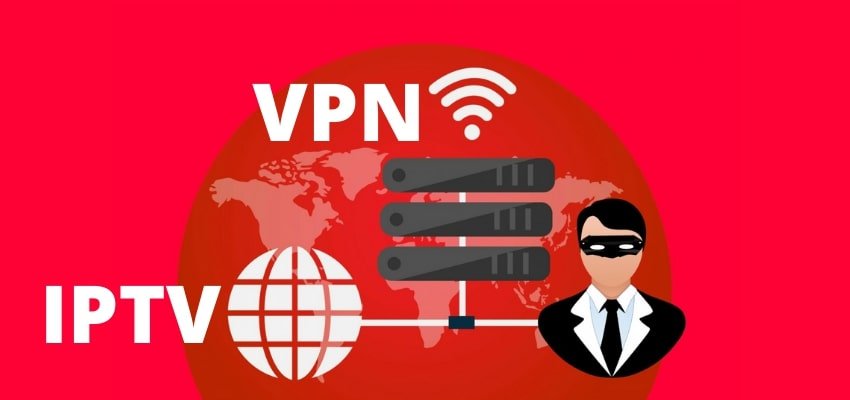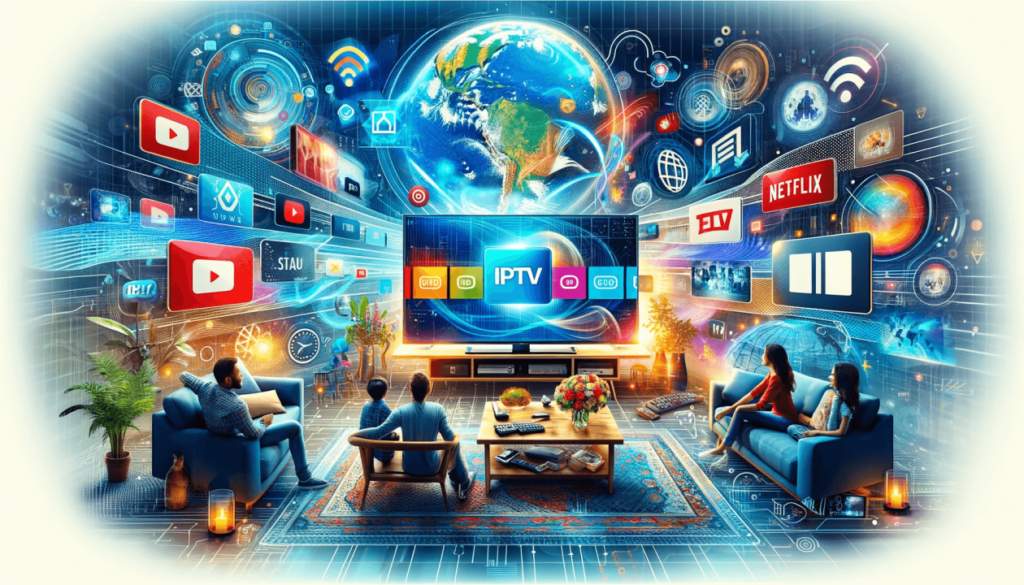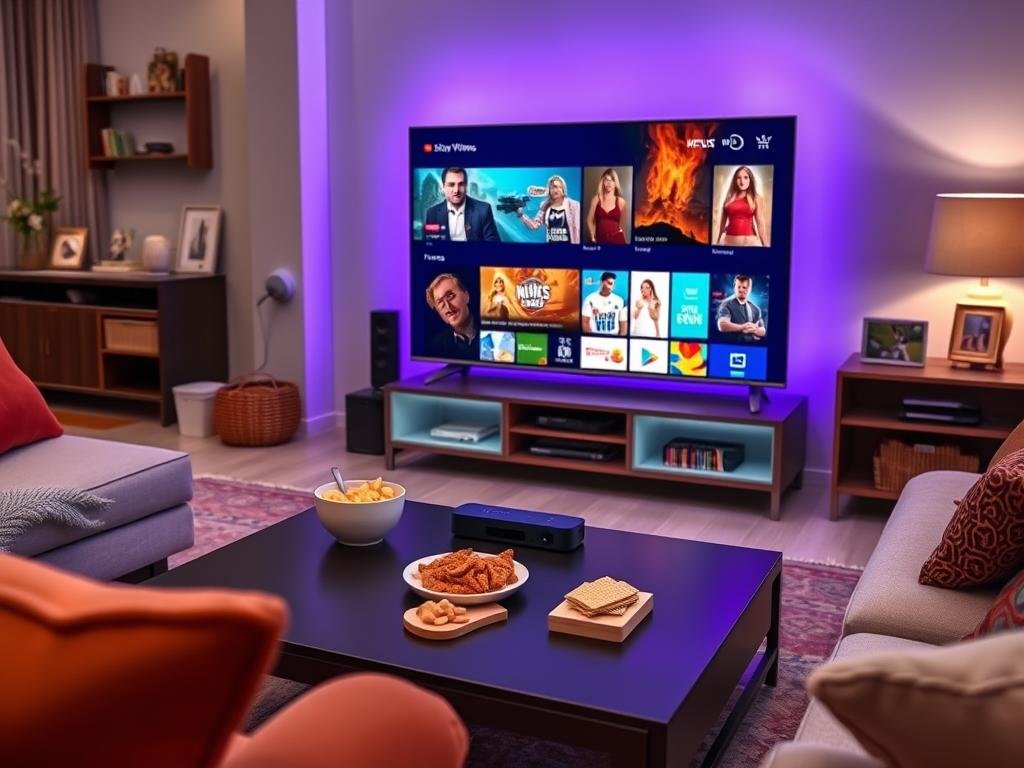
If you’re an IPTV user or thinking about getting into Internet Protocol Television (IPTV), you’ve likely come across recommendations to use a VPN for IPTV. A Virtual Private Network (VPN) can enhance your streaming experience, but is it really necessary for IPTV? This article explores what a VPN is, its potential benefits for IPTV users, and whether it’s something you need.
What is IPTV?
IPTV delivers television content over the internet, unlike traditional cable or satellite TV. It allows users to access live channels, on-demand content, and video-on-demand (VOD) services from around the world. OTTOCEAN IPTV is gaining popularity due to its flexibility, affordability, and diverse content offerings.
However, because IPTV relies on the internet, issues like geo-restrictions, ISP throttling, and privacy concerns can arise. This is where a VPN can be helpful.
What is a VPN?
A VPN (Virtual Private Network) creates a secure, encrypted connection between your device and the internet. When you use a VPN, your online activities are routed through a remote server, which can be located anywhere in the world. This masks your real IP address, making it appear as though you’re browsing from a different location, and helps keep your online activity private and secure.
Why Use a VPN for IPTV?
-
- Bypass Geo-Restrictions Some IPTV services restrict content based on location, limiting access to certain live TV channels or shows. A VPN for iptv allows you to connect to a server in another country, bypassing these restrictions. This is especially useful for watching international sports, TV shows, or movies unavailable in your region.
-
- Prevent ISP Throttling Streaming IPTV requires significant bandwidth, and ISPs sometimes slow down your connection when they detect high usage, leading to buffering and interruptions. A VPN for iptv hides your online activity, preventing your ISP from detecting that you’re streaming IPTV, which can help you maintain faster, more stable internet speeds.
-
- Enhance Privacy and Security When using IPTV, your internet activity is visible to your ISP and possibly third parties. This raises privacy concerns, especially if you’re using less-known vpn for IPTV services operating in legal gray areas. A VPN encrypts your internet connection, ensuring that your online activities remain private, protecting your personal data from tracking or surveillance.
-
- Access Blocked IPTV Services Some ISPs block access to IPTV services, especially if they believe those services operate in a legal gray area. If you can’t connect to your IPTV provider or experience stream failures, your ISP may be blocking access. A VPN can help bypass these blocks by masking your vpn for IPTV usage.
When You Might Not Need a VPN for IPTV
While a VPN can be beneficial, it’s not always necessary. Here are a few scenarios where you may not need one:
-
- Using a Legal IPTV Service: If your IPTV service is fully legal and operates within your country without geo-restrictions, a VPN for iptv might not be needed.
-
- No Privacy Concerns: If privacy and security aren’t major concerns for you, you may not need a VPN for iptv. However, privacy advocates still recommend using one to protect your online activity.
-
- No ISP Throttling: If your ISP doesn’t throttle IPTV traffic and you experience consistently fast speeds, a VPN may not be necessary.
VPN Considerations for IPTV Users
If you choose to use a VPN for IPTV, consider the following:
-
- Speed: Streaming IPTV for iptv requires significant bandwidth, so opt for a VPN provider with fast servers to avoid buffering and interruptions.
-
- No-Log Policy: Choose a VPN that doesn’t store your browsing data or personal information to ensure maximum privacy.
-
- Multiple Server Locations: A VPN with servers in multiple countries allows you to bypass geo-restrictions and access more content.
Conclusion: Is a VPN Necessary for IPTV?
A VPN isn’t required vpn for IPTV, but it can significantly enhance your streaming experience. Whether you want to bypass geo-restrictions, avoid ISP throttling, or boost your privacy, a VPN is a valuable tool. For many users, the benefits of using a VPN far outweigh the small inconvenience of setting it up, best vpn for iptv.
If you’re serious about optimizing your IPTV experience, using a VPN is a smart choice. It not only unlocks additional content and ensures smoother streaming but also safeguards your online privacy—a crucial aspect of the modern digital world.

1. Introduction to VPNs and IPTV
Using a VPN for IPTV has become increasingly important as more viewers turn to streaming services for their entertainment. A Virtual Private Network (VPN) can help secure your internet connection and protect your privacy while accessing IPTV content. Understanding the role of VPNs in IPTV can significantly enhance your viewing experience.
2. What is IPTV?
IPTV, or Internet Protocol Television, allows users to stream television content over the internet instead of through traditional cable or satellite methods. This shift in how we consume television has opened up a wide range of options for viewers, making it more important than ever to ensure safe and secure access to content.
3. Why Use a VPN for IPTV?
A VPN encrypts your internet traffic, providing a layer of security that protects your data from prying eyes. When streaming IPTV content, using a VPN can help prevent ISP throttling, allowing for smoother playback and better quality. This is particularly beneficial for viewers who want to enjoy their favorite shows without interruptions.
4. Do I Need a VPN for IPTV?
The question of whether you need a VPN for IPTV often arises among new users. While it’s not mandatory to use a VPN for IPTV, it is highly recommended for those who prioritize privacy and security. A VPN can shield your online activity from potential snooping and ensure that your data remains private.
5. Best VPNs for IPTV
When searching for the best VPN for IPTV, there are several factors to consider, including speed, server locations, and compatibility with streaming devices. Leading VPN providers often offer dedicated features that enhance the streaming experience, making them ideal choices for IPTV users.
6. Key Features to Look for in a VPN
When evaluating VPNs for IPTV, look for features such as high-speed connections, unlimited bandwidth, and strong encryption protocols. A user-friendly interface and the ability to bypass geo-restrictions are also crucial. These elements can significantly impact your ability to stream content seamlessly.
7. Top Recommendations for VPNs in 2024
In 2024, several VPNs stand out as excellent choices for IPTV users. Providers like NordVPN, ExpressVPN, and Surfshark have earned high marks for their speed, reliability, and comprehensive server networks. Each of these options offers unique features tailored for streaming, making them popular among IPTV users.
8. Do I Need a VPN for IPTV Streaming?
While you may not technically need a VPN to access IPTV services, using one can enhance your overall experience. A VPN can help you access geo-restricted content, giving you a wider range of viewing options. Additionally, it helps keep your online activities private from ISPs and other third parties.
9. The Importance of Privacy in Streaming
As more viewers turn to IPTV, concerns about privacy and security become increasingly relevant. ISPs can monitor your internet activity, including the content you stream. A VPN acts as a shield, preventing ISPs from tracking your viewing habits and keeping your information confidential.
10. Avoiding ISP Throttling with a VPN
ISP throttling occurs when your internet service provider intentionally slows down your connection based on your activity. This can be particularly frustrating while streaming IPTV content. By using a VPN, you can avoid this issue, ensuring that you enjoy smooth, uninterrupted streaming.
11. Accessing Geo-Restricted Content
Many IPTV services are subject to geo-restrictions, meaning certain content may not be available in your region. A VPN allows you to change your IP address to appear as if you are accessing the internet from a different location, effectively bypassing these restrictions and granting access to a broader range of content.
12. Choosing the Right VPN Protocol
Selecting the right VPN protocol can also impact your IPTV experience. Protocols like OpenVPN and IKEv2/IPSec are known for their balance of speed and security, making them suitable for streaming high-quality content. Understanding these protocols can help you optimize your VPN setup for IPTV.
13. Setting Up a VPN for IPTV
Setting up a VPN for IPTV is generally straightforward. Most reputable VPNs provide easy-to-follow instructions for installation on various devices, including smart TVs, streaming boxes, and mobile devices. Following these guidelines will ensure you can quickly start enjoying secure IPTV streaming.
14. Common Concerns about VPN Usage
Some users may have concerns about using a VPN for IPTV, such as potential slowdowns or compatibility issues with certain devices. However, by choosing a high-quality VPN and optimizing your settings, these concerns can often be mitigated, allowing for a seamless streaming experience.
15. Evaluating VPN Performance
Before committing to a VPN, it’s wise to evaluate its performance, particularly regarding speed and stability. Many VPN providers offer trial periods or money-back guarantees, enabling you to test their service without risk. This can help ensure you select a VPN that meets your needs for IPTV streaming.
16. Compatibility with IPTV Services
When selecting a VPN for IPTV, ensure that it is compatible with your chosen IPTV service. Some providers have restrictions on the use of VPNs, which can affect your ability to stream content. Researching compatibility ahead of time can save you from potential frustration down the line.
17. The Future of VPNs and IPTV
As IPTV continues to grow in popularity, the use of VPNs will likely become more common among users. The increasing focus on privacy and security in digital streaming makes VPNs an essential tool for protecting personal information while enjoying a diverse array of content.
18. Additional Security Features to Consider
In addition to standard encryption, some VPNs offer additional security features such as a kill switch and DNS leak protection. A kill switch prevents your internet connection from dropping if the VPN fails, ensuring your data remains protected at all times. These features can provide added peace of mind for IPTV users.
19. User Reviews and Recommendations
Reading user reviews can be incredibly helpful when selecting a VPN for IPTV. Many users share their experiences regarding speed, reliability, and customer service. This information can offer valuable insights that guide your decision-making process.
20. Customer Support and Service
Strong customer support is a crucial aspect to consider when choosing a VPN for IPTV. Look for providers that offer 24/7 support through multiple channels, such as live chat, email, or phone. Reliable customer service can make a significant difference if you encounter any issues.
21. Cost Considerations for VPNs
While many VPNs offer competitive pricing, it’s essential to consider the long-term costs involved. Subscribing to a quality VPN service can provide significant benefits, but it’s important to ensure that it fits within your budget. Some providers offer discounts for longer subscription commitments, making them more affordable.
22. Free VPNs vs. Paid VPNs
While free VPNs may seem appealing, they often come with limitations, such as slower speeds and data caps. Additionally, free services may not offer the same level of security as paid options. For the best IPTV experience, investing in a reputable paid VPN is generally advisable.
23. Conclusion: The Value of a VPN for IPTV
In conclusion, using a VPN for IPTV can greatly enhance your streaming experience. It not only provides privacy and security but also allows access to a broader range of content. As the IPTV landscape continues to evolve, a reliable VPN will remain a valuable tool for consumers.
24. Staying Informed About VPN Updates
As technology progresses, VPN services regularly update their features and protocols to enhance performance and security. Staying informed about these updates can help you make the most of your VPN for IPTV and ensure you are using the best available tools.
25. Integrating VPN with Your Streaming Devices
Many users may wonder how to integrate a VPN with their streaming devices. Many modern routers allow VPN installation directly, enabling all connected devices to benefit from VPN protection. This can simplify the process and ensure that your entire home network is secure.
26. Best Practices for Using a VPN with IPTV
To maximize your IPTV experience with a VPN, consider best practices such as regularly checking for software updates, using a wired connection when possible for better stability, and periodically testing your connection speed. These practices can help you maintain an optimal streaming experience.

27. Community Insights on VPN Usage for IPTV
Engaging with community forums can provide valuable insights into VPN usage for IPTV. Many users share tips, tricks, and recommendations based on their experiences, offering a wealth of information that can aid in selecting the right VPN.
28. Looking Ahead: The Role of VPNs in IPTV
As streaming continues to reshape the television landscape, the role of VPNs will become increasingly significant. Embracing these tools will not only enhance privacy and security but also allow viewers to fully enjoy the expansive world of IPTV content available to them.
Using a VPN for IPTV also provides the benefit of anonymity while streaming. Many viewers value their privacy and prefer not to have their viewing habits tracked by ISPs or advertising companies. By masking your IP address, a VPN can help ensure that your online activities remain private, allowing you to enjoy your favorite shows without being subjected to targeted ads or data collection.
Furthermore, the ability to connect to servers in various countries expands your access to international content. Many IPTV services are region-specific, and a VPN allows you to bypass these geographic restrictions. For instance, if you want to watch a sports event or series available only in a different country, a VPN can make it possible by changing your virtual location.
Another consideration is the impact of network congestion during peak usage times. With many users streaming content simultaneously, connections can slow down. A reliable VPN can help alleviate this issue by routing your traffic through less congested servers, potentially improving streaming speeds and reducing buffering.
Security is paramount when using any internet service, and IPTV is no exception. Cyber threats, such as data breaches and malware attacks, can compromise your online safety. A reputable VPN adds an essential layer of protection, encrypting your data and reducing the risk of unauthorized access while you stream content.
In addition to individual users, VPNs are also valuable for businesses that provide IPTV services. Companies can protect their proprietary content and prevent unauthorized access to their streams. By using a VPN, they can ensure that only authorized users have access to their programming, thus maintaining the integrity of their service.
As technology evolves, we can expect VPNs to continue integrating advanced features that further enhance the IPTV experience. Innovations such as split tunneling—allowing users to choose which apps go through the VPN—can offer added flexibility. Such advancements will empower users to tailor their streaming and security needs more effectively.
Lastly, it’s worth noting that as more people adopt IPTV and VPN technologies, discussions about regulations and policies surrounding these services will likely increase. Governments and regulatory bodies may introduce guidelines to address issues like copyright protection and internet privacy. Staying informed about these changes will be essential for users who wish to navigate the IPTV landscape responsibly.



